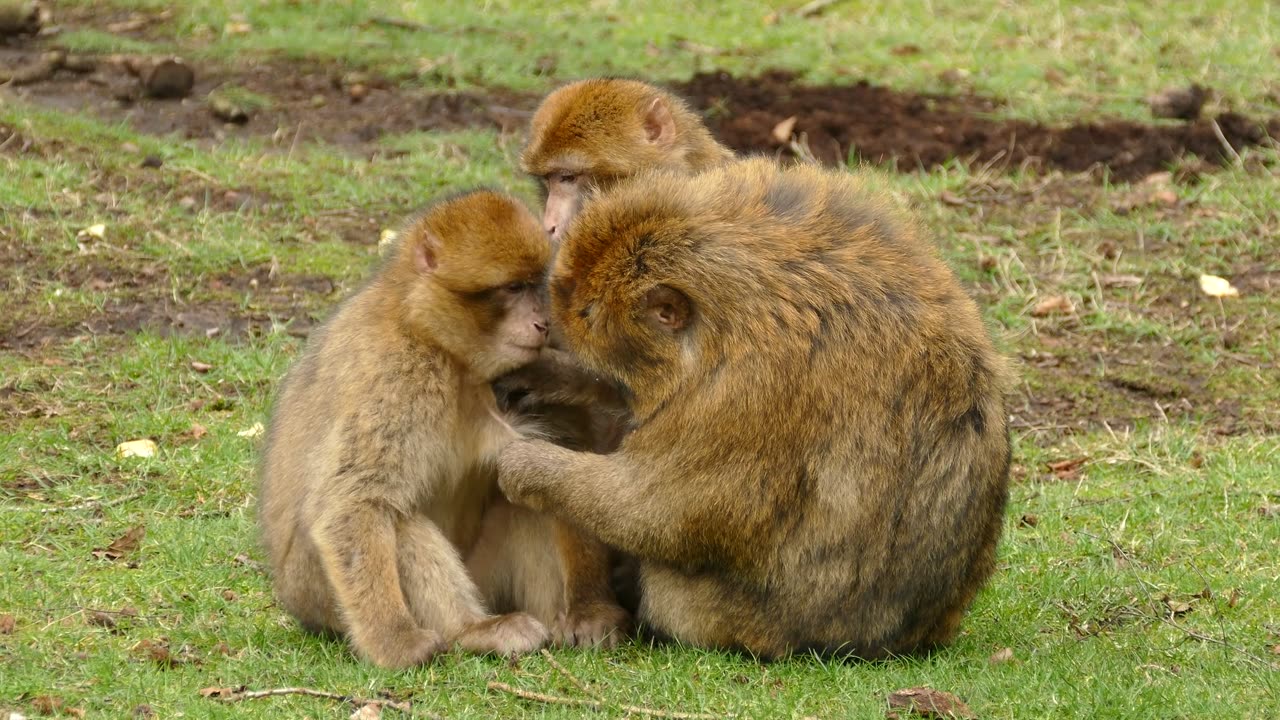Premium Only Content

Ape Monkey Primate
Embark on a journey into the captivating realm of primates, specifically the remarkable group known as apes. As part of the primate family, apes share a close kinship with humans, showcasing both astonishing similarities and intriguing differences. This brief description provides a glimpse into the world of apes, highlighting their intelligence, social dynamics, and unique characteristics that set them apart in the animal kingdom.
Apes, including species like gorillas, chimpanzees, bonobos, orangutans, and humans, are distinguished by their advanced cognitive abilities and complex social structures. Their larger brain size and enhanced problem-solving skills contribute to their impressive adaptability to various habitats, from dense rainforests to open savannas.
One of the defining features of apes is their lack of a tail, which distinguishes them from their primate relatives, such as monkeys. This tailless trait reflects their adaptation to life in trees and, in some cases, their partial transition to terrestrial environments. Apes' grasping hands and opposable thumbs enable them to manipulate objects, build intricate nests, and even use tools—a trait once believed to be exclusive to humans.
Apes' social lives are equally captivating. They exhibit intricate communication systems, using gestures, vocalizations, and facial expressions to convey emotions and intentions. Family bonds play a crucial role, with many apes living in cohesive groups led by a dominant individual. These complex social structures are often marked by cooperation, alliances, and even conflict resolution, underscoring the depth of their social intelligence.
Despite their similarities, each ape species boasts unique qualities. Gorillas, for instance, are known for their sheer strength and gentle nature, while chimpanzees and bonobos display intricate social hierarchies and remarkable problem-solving abilities. Orangutans, the "people of the forest," are renowned for their solitary nature and exceptional tree-climbing skills.
Finally, humans, as a part of the ape family, stand as the pinnacle of ape evolution, with language, culture, and technological advancements setting us apart. The study of apes provides valuable insights into our own origins and behaviors, fostering a deeper understanding of our place in the natural world.
In conclusion, apes illuminate the captivating world of primates with their intelligence, adaptability, and intricate social lives. Their shared kinship with humans offers a window into the evolutionary tapestry that binds us to the animal kingdom. Whether swinging through rain forest canopies or forging connections within their social groups, apes continue to intrigue and inspire our curiosity about the wonders of nature.
-
 1:27:34
1:27:34
TruthStream with Joe and Scott
4 days agoArchitect Richard Gage: 911 truths and more #482
23K6 -
 LIVE
LIVE
Lofi Girl
2 years agoSynthwave Radio 🌌 - beats to chill/game to
154 watching -
 56:48
56:48
The HotSeat
13 hours agoI'm NOT Sorry! Guns Aren’t the Problem—Godless Culture Is
27.5K29 -
 9:43
9:43
The Pascal Show
14 hours ago $0.36 earnedWHOA! Annunciation School Sh**ter Identified... Heartbreaking & Insane
1.7K2 -
 22:42
22:42
Liberty Hangout
8 hours agoCollege Democrats Say Gangs Are GOOD!
73.8K65 -
 2:14:50
2:14:50
Badlands Media
14 hours agoBadlands Media Fantasy Football Live Draft
43.2K -
 2:12:29
2:12:29
Inverted World Live
8 hours agoWe Are Time Travelers | Ep. 100
86.1K13 -
 2:57:09
2:57:09
TimcastIRL
8 hours agoCorporate Press Refuses To Mention Minneapolis Shooter Was Trans | Timcast IRL
192K102 -
 5:26:57
5:26:57
Akademiks
7 hours agoWar in RAT-LANTA. Young Thug vs Gunna vs Ralo vs YSL MONDO. Who Will Le Bebe Pick. FINAL CRASHOUT!
60.1K6 -
 1:02:24
1:02:24
Man in America
11 hours agoThe Final Battle: Nanotech, Transhumanism & the War for Your Soul w/ Dr. Ed Group
48.8K6